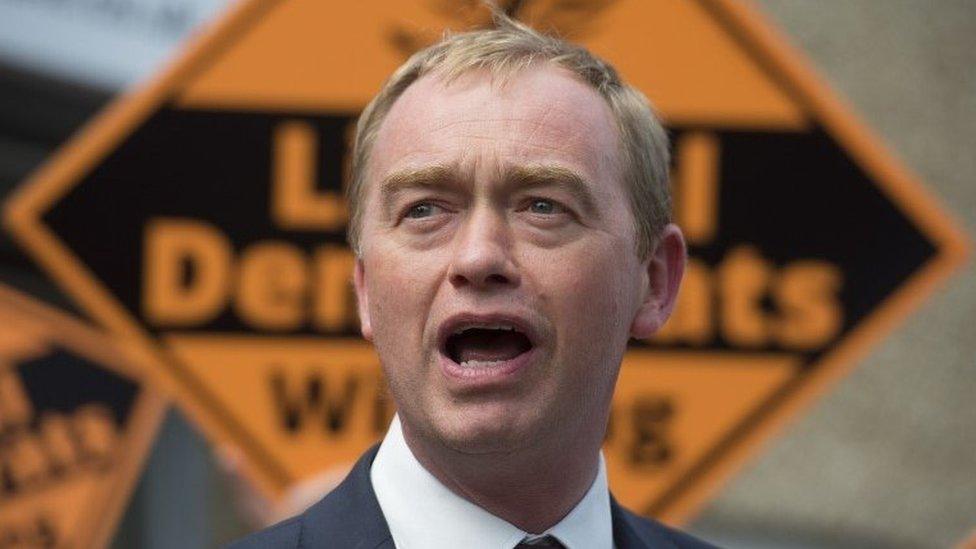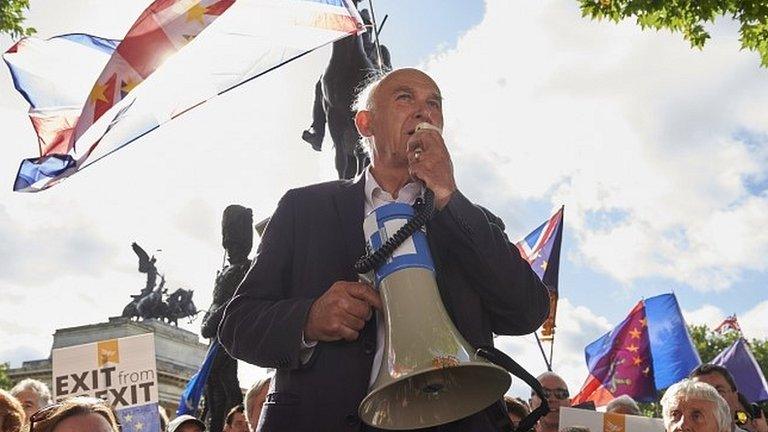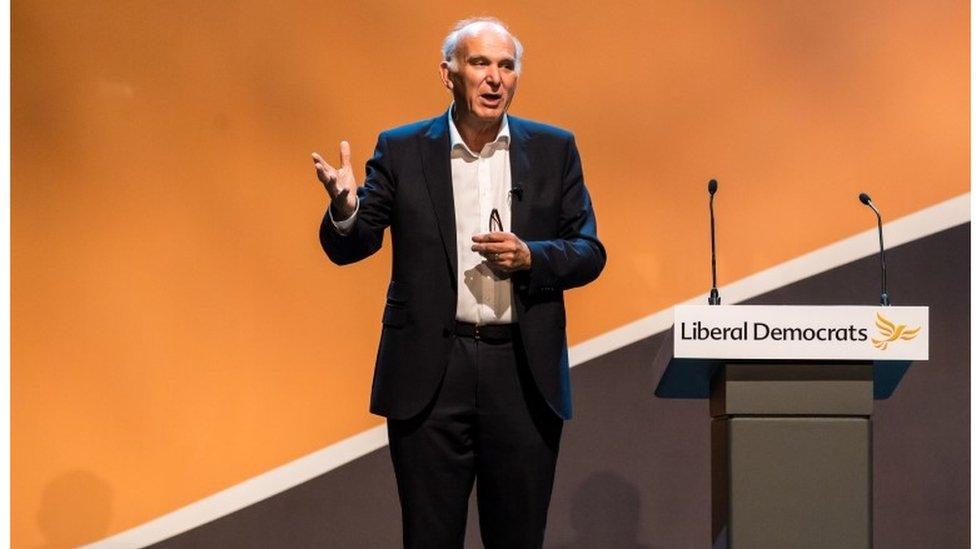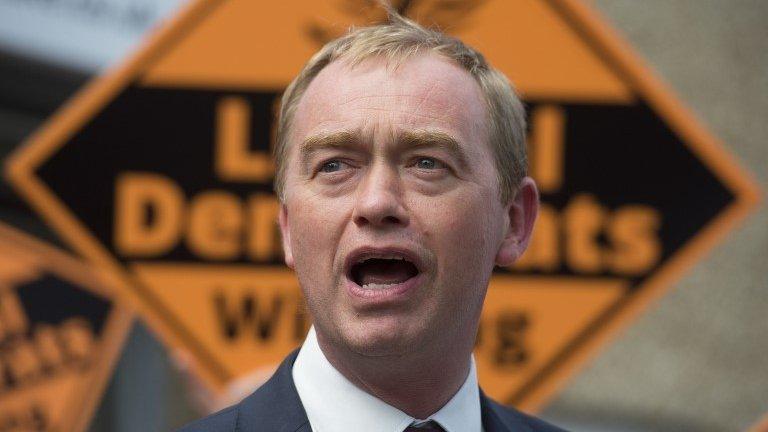Tim Farron: Tories 'breaking Britain over immigration'
- Published

Sir Vince Cable will make his first leader's speech on Tuesday after Tim Farron resigned in June
Former Liberal Democrat leader Tim Farron has accused the Conservatives of "breaking Britain" in a bid to cut immigration.
At the party conference, he said Brexit would turn the UK into a "poorer, meaner, insular place".
And he said the Lib Dems had been "saved" having been "dismissed as irrelevant" after the 2015 election.
Mr Farron, who quit as leader in June, received a standing ovation from the party faithful in Bournemouth.
He described his successor, Sir Vince Cable, as "the wisest person on the planet".
And he insisted his party still had a crucial role to play in British politics despite another disappointing general election in June.
He said the party had increased its membership and made gains in local elections, telling supporters: "We saved the Liberal Democrats and I am proud of every single one of you."
"It is now clear if there is to be a realignment of progressive forces then it can only be around this party," he added.
Mr Farron also branded Theresa May and Jeremy Corbyn "cowards", saying they had changed their mind on the EU "to suit the weather".
Labour's general election result had been "better than expected", he said, but told MPs who had criticised the leadership: "You may have saved your seats, but you have lost your party."
Much of the speech focused on Brexit, which he said would "reduce immigration without changing a single law".
"Because if you turn Britain into a poorer, meaner, insular place, no-one in their right mind will choose to come here.
"So the Tories are breaking Britain to repel the immigrants. And they do it with Labour's shameful connivance. What a disgrace."
Mr Farron has called for a second vote on the terms of any Brexit deal.
It was Mr Farron's first Lib Dem conference speech since quitting, when he said he was "torn between living as a faithful Christian and serving as a political leader" having faced repeated questions about his attitude towards gay sex.
The four-day conference focusing on Brexit with a debate at the end of the week on the UK's future relationship with the EU 27 (the other remaining countries in the European Union).
- Published14 September 2017

- Published16 September 2017

- Published14 June 2017
